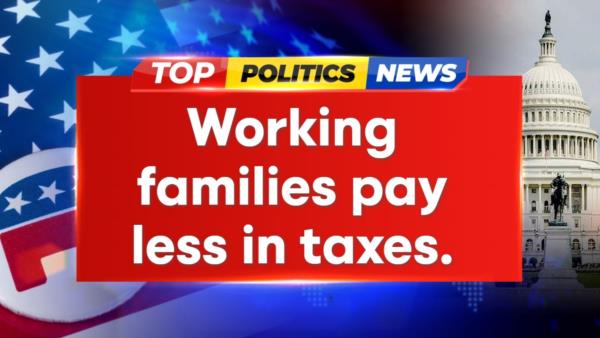
In a recent debate, the issue of tax reform and energy independence took center stage as candidates clashed over their differing views and track records. The question of how working families would be affected by potential tax changes was raised, with one candidate advocating for a progressive tax system and another proposing a flat rate approach.
The candidate in favor of a progressive tax system argued that working families would actually pay less than their current tax burden. They suggested exempting those in the working class from paying any taxes up to a certain income threshold, ensuring that basic subsistence needs are met. Above that threshold, a single rate would be applied, with higher earners paying more in taxes proportionate to their income.
However, the response from their opponent called into question the trustworthiness of these claims. They argued that promises made by the progressive tax advocate had been broken in the past, citing examples of raising the debt limit despite promising not to do so. The opponent also called attention to the candidate's changing positions on energy policies, highlighting conflicting statements regarding fracking, offshore drilling, and renewable fuel standards.
The opponent accused the candidate of inconsistency, pointing out their previous support for banning fracking and offshore drilling, authoring legislation to eliminate renewable fuel standards, and even calling for a halt to drilling in federal waters. They questioned why the candidate would now reverse their stance and express support for energy independence during their visit to Iowa.
In response, the candidate defended their position, stating that they had consistently championed energy independence and the production of biofuels. They emphasized their commitment to opening up energy production within the United States, highlighting the importance of reducing reliance on foreign sources, such as Venezuela and Saudi Arabia. The candidate also pledged to prioritize domestic energy sources, favoring regions like Midland, the Marcellus Shale, and the Bakken over international alternatives.
Furthermore, they highlighted the economic and national security benefits of energy independence, including reduced inflation and the preservation of the American automobile industry. They vowed to reverse what they deemed the harmful effects of the Green New Deal and electric vehicle mandates implemented by the current administration, which they argued would be detrimental to the country.
The debate surrounding tax reform and energy policy underscored the sharp differences between the candidates. While one advocated for progressive tax changes and emphasized the benefits of renewable energy, the other questioned their credibility and presented a vision of energy independence through domestic production. As the campaign progresses, voters will have to consider these conflicting perspectives and make their own determinations on which candidate offers the best path forward for working families and the country as a whole.







